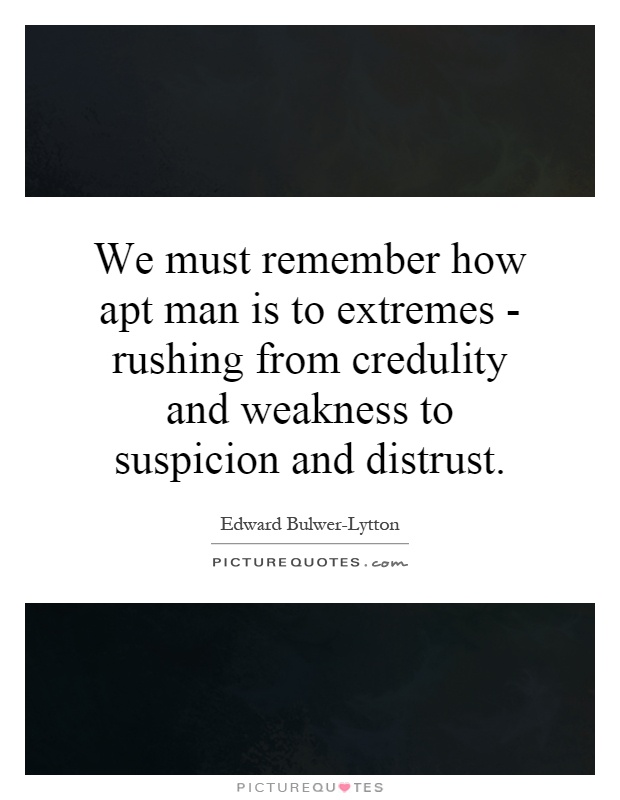We must remember how apt man is to extremes - rushing from credulity and weakness to suspicion and distrust

We must remember how apt man is to extremes - rushing from credulity and weakness to suspicion and distrust
Edward Bulwer-Lytton, a prominent English novelist and politician, was keenly aware of the human tendency towards extremes. In his works, he often explored the themes of credulity and suspicion, highlighting how easily individuals can swing from one extreme to the other. Bulwer-Lytton understood that human nature is complex and prone to irrational behavior, making us susceptible to both blind faith and unwarranted distrust.One of Bulwer-Lytton's most famous quotes, "We must remember how apt man is to extremes - rushing from credulity and weakness to suspicion and distrust," encapsulates his understanding of human nature. He recognized that people are often quick to believe in something without questioning its validity, only to later become overly suspicious and distrustful. This pattern of behavior can be seen throughout history and in contemporary society, where individuals are swayed by misinformation and propaganda, leading to a cycle of blind faith and paranoia.
Bulwer-Lytton's own life experiences likely influenced his observations on human behavior. As a politician, he would have witnessed firsthand the power of persuasion and manipulation in shaping public opinion. He understood how easily people can be swayed by charismatic leaders or persuasive rhetoric, leading them to blindly follow without critical thinking. At the same time, he would have seen the destructive consequences of unchecked suspicion and distrust, which can tear communities apart and breed fear and division.












 Friendship Quotes
Friendship Quotes Love Quotes
Love Quotes Life Quotes
Life Quotes Funny Quotes
Funny Quotes Motivational Quotes
Motivational Quotes Inspirational Quotes
Inspirational Quotes